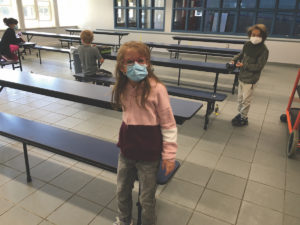PROVINCETOWN — In February 2019, the Provincetown Municipal Airport Commission stated that the airport’s revolving account would be empty by the fiscal year 2021-2022. The commission wrote, “We are working on a plan to cover the projected need for the FY 2022-2024.”
Then, the pandemic struck, and, throughout the summer, Provincetown Airport became a ghost town. Traffic on the airport’s only scheduled route, between Provincetown and Boston, dropped by 95 percent in March. Today, it’s hardly recovered, and is still down 80 percent from last year.
But thanks to federal largesse under the CARES Act Airport Grant Program — which drew criticism for its disproportionate grants to smaller airports — the Provincetown Airport has emerged from its worst summer in history unscathed. In April, the airport received a federal grant of $1.04 million, approximately 11 times its projected operating budget for the coming year.
Provincetown Airport has not lost significant revenue in the economic downturn. Unlike larger airports that rely on revenue from passenger facility charges, smaller airports such as Provincetown’s receive most of their revenue from leases with commercial airlines — around $40,000 per year for Provincetown from its sole airline, Cape Air.
More important to smaller airports is an annual requirement of 10,000 enplanements, or passenger boardings, to be eligible for Federal Aviation Administration Airport Improvement Project (AIP) grants that enable them to conduct millions of dollars worth of required safety improvements each year.
This year, Provincetown Airport won’t come close to reaching that 10,000 qualifying number, but, according to the F.A.A., passenger enplanement numbers from FY 2019 will be used to determine AIP grants for FY 2021.
Luckily, Provincetown Airport exceeded the minimum by 432 passengers in 2019. So, in addition to the $1.04 million that it received under the CARES Act, it will continue to have access to millions of dollars in potential AIP grants throughout the fiscal year.
Just this past Sept. 1, the airport received an AIP grant of $1.7 million, to install taxiway lighting and acquire an emergency generator, meaning the $1.04 million received in April can be stashed away for future projects.
Almost completely out of money before the pandemic, the airport now has a loaded bank account, and will be able to cover operating expenses like mowing the lawn and other maintenance work, utility bills, debt servicing, legal fees, payroll, or even promotion of the airport for the next four years — the time limit for spending the CARES Act grant. The airport can also ask to use the money to fund larger improvement projects.
“There are a number of future safety upgrades and maintenance projects on the list that this money can and will most likely go towards,” Airport Manager Butch Lisenby said. “For now, we should be able to keep our heads above water.”
Back in April, in an attempt to fix the flawed formula that benefitted smaller airports like Provincetown, the F.A.A. amended the terms of the grant program by capping all grants at four times the amount of an airport’s annual operating budget, “unless the remaining amount available to grant to the airport would be less than $1 million.”
With a $1.04 million grant and a proposed operating budget of $93,550 for FY 2021, Provincetown is not subject to the amended terms and gets to keep the entire grant.
Though the Provincetown Airport was able to weather this year’s storm by opening its arms to overgenerous federal grants, its sole commercial client, Cape Air, is holding its breath hoping for another round of government aid to airlines.
“Revenue from the Provincetown route was down 85 percent over the summer,” Cape Air CEO Dan Wolf told the Independent. “That is a route that is not performing in a sustainable way, but we will hang in there, because there is going to be light after Covid, if you will.”
Though negotiations for a standalone airline relief package and a larger stimulus plan are stalled in D.C., Cape Air is currently holding out on the option of a restructuring plan. Last week, Cape Air headquarters in Hyannis sent a letter to all of its employees stating that they will not make any changes through the end of the year.
In the first round of stimulus aid, Cape Air received $22.8 million from the CARES Act and the Small Business Administration. Though the airline has not laid off any of its approximately 750 employees — a condition for receiving money under the CARES Act — 60 employees have taken voluntary furloughs.
Still, with overall revenue down 70 to 80 percent over the summer — Provincetown to Boston being the route that performed the worst — if more aid doesn’t materialize by the end of the year they will have to restructure the company, according to Wolf.
“It is painful to watch what is going on in D.C.,” Wolf said. “Cape Air cannot continue to do what we have done in all of our communities unless we get more aid.”
Currently, Cape Air and Provincetown Airport are negotiating a new long-term contract, indicating that Wolf is optimistic about the future and its ability to provide a vital link between the tip of Cape Cod and Boston’s Logan International Airport.
Wolf expects flight activity to return to 80 percent of normal within a year of a Covid-19 vaccine.
“During the aftermath of 9/11, I asked myself, will people want to get back in a plane?” Wolf said. “It certainly took a few years, but there was a recovery then, and there will be one now.”
Editor’s note: This article has been updated with new information since the Oct. 15 print edition went to press.









